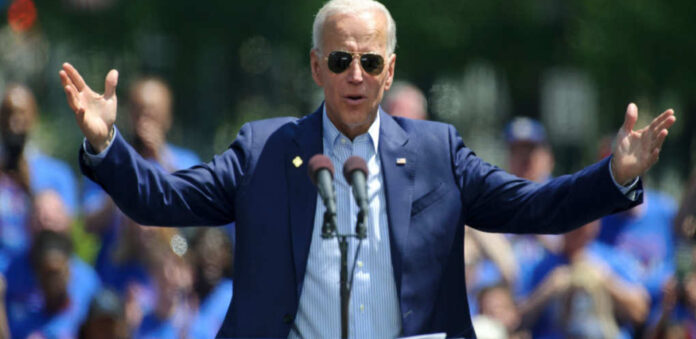The White House today released a fact sheet that criticized the risks of decentralized cryptocurrencies while promoting a centralized Fed-control “digital dollar,” which experts told the Daily Caller News Foundation came with significant privacy risks.
The White House criticized the transparency of digital currencies and the volatile nature of cryptocurrencies, claiming that a U.S.-sponsored cryptocurrency known as a Central Bank Digital Currency (CBDC) could potentially achieve a variety of goals including protecting national security, advancing financial inclusion and promoting economic growth, pending research. Experts and congressional representatives who spoke to the DCNF expressed skepticism that a CBDC would meaningfully benefit people, and concerns that the technology could be used to monitor and even limit people’s ability to make their own economic decisions. (RELATED: White House Labels Cryptocurrency Mining A Climate Threat)
“Really the greatest benefit that a CBDC can offer is not for you or me on the street, but rather for the government’s efforts to surveil financial activity,” said Nicholas Anthony, a policy analyst with the Cato Institute’sCenter for Monetary and Fiscal Alternatives, in an interview with the DCNF. “It gives them a new level of control over surveilling individual accounts… like being able to control it.”
Anthony noted a common anecdote he had heard from proponents of CBDCs would be the ability for parents to put controls on their children’s spending, for example. However, this technology could just as easily be used to restrict adults’ purchases, such as on alcohol or tobacco products, Anthony said.
Anthony’s comments mirror those made by Minneapolis Federal Reserve Chair Neel Kashkari who, speaking at a panel hosted at Columbia University, said that he had no idea what problem CBDCs solved, noting that he could said anyone in the room five dollars on the popular mobile payment app Venmo “right now.”
“What is it that a CBDC can do that Venmo can’t do?” Kashkari asked a snickering audience. He went on to note that CBDC advocates sometimes cited China as an example of a country where CBDCs were working.
“I can see why China would do it,” he said. “If they want to monitor every one of your transactions, you could do that with a [CBDC], you can’t do that with Venmo.”
When asked about Kashkari’s comments, Anthony noted that the two differed on a variety of issues but he “agreed completely” with the comments Kashkari made at the panel. Anthony also said that, aside from the ability for the government to more efficiently monitor and regulate transactions, a CBDC offers no unique benefits such as faster transactions or financial inclusion that do not already have private sector alternatives.
“It’s almost fundamentally the same [to our current economic system] and yet, you have folks in the government don’t want to reinvent the entire money system, effectively experimenting with the money in all of our pockets and all of our accounts, to recreate something that largely isn’t too much different than what already exists,” said Anthony. “Albeit, with the one exception of the capabilities the government itself will have over it.”
In addition to some of the concerns mentioned by Anthony, Luke Hogg, Policy Manager at technology think-tank Lincoln Network, said in an emailed statement to the DCNF that the concept of a centralized cryptocurrency defeated the purpose of the technology.
“The idea of creating a US CBDC is proof that just because you can put something on the blockchain doesn’t mean you should,” said Hogg. “At the highest level, taking technology that was created as a counter to centralized authority and using it to further centralize the financial system defeats the purpose of decentralization and trustless financial tools.”
Republican Reps. Tom Emmer of Minnesota and Warren Davidson of Wisconsin, each members of the House Committee on Financial Services, with Emmer a ranking member, expressed concerns about the administration’s plan.
“The Administration must embrace the benefits of open, permissionless, and private digital assets, rather than place prominence on central bank digital currencies, the benefits of which remain confounding,” Emmer said in a statement to the DCNF. He also expressed concerns about surveillance.
“Unless there is a guarantee that a CBDC would preserve the same attributes as physical cash, the U.S. should not pursue anything that jeopardizes transaction privacy,” said Davidson, “The White House’s report today, unfortunately, fails to commit to this idea. Until there is a guarantee on the table, Americans should oppose any further consideration of CBDC at all costs.”
Anthony did appreciate the administration’s attempt to include the Consumer Financial Protection Bureau (CFPB) and Federal Trade Commission (FTC) in efforts to combat fraud. Anthony claimed that the CFPB and FTC had been neglected in the effort to combat fraud in the cryptocurrency space that had largely been dominated by the Securities and Exchange Commission.










